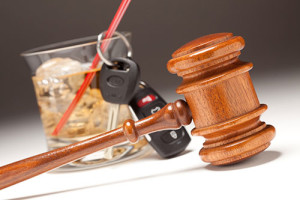Can a DUI Affect Child Custody Decisions?
 In Colorado, driving under the influence can lead to several different consequences, ranging from hefty fines and court-ordered rehabilitation to jail time and limits on or the complete loss of driving privileges. A DUI can also damage a person’s reputation, limit employment opportunities, and even affect a parent’s child custody rights.
In Colorado, driving under the influence can lead to several different consequences, ranging from hefty fines and court-ordered rehabilitation to jail time and limits on or the complete loss of driving privileges. A DUI can also damage a person’s reputation, limit employment opportunities, and even affect a parent’s child custody rights.
Colorado is a no-fault divorce state, which means that you do not need to establish that your spouse has an alcohol problem to be granted a divorce. You may, however, establish that your spouse is an unfit parent due to the alcohol abuse and is thus undeserving of child custody. Though moderate drinking will not affect the court’s decisions pertaining to child custody, courts will take seriously any substance abuse issue that impacts an individual’s parenting ability.
It can be challenging to prove that the other parent has an alcohol-related problem that deems him or her to be an unfit parent. You may need to obtain evidence that the other parent is indeed a danger to your child. This may include police reports of any DUI arrests and other alcohol-related offenses, as well as other documentation and visual evidence that proves to the court that your ex-spouse has a serious problem with alcoholism. Friends and family members may need to testify in court on your behalf about any first-hand experiences with your ex-spouse while he or she was intoxicated. Lastly, you will need to demonstrate how your ex-spouse’s behavior endangers your child’s safety when he or she is in the custody of the alcoholic parent. Note that the court may opt to give your spouse some time to get rid of the alcohol problem, through an alcohol abuse program or rehabilitation.
A first-time DUI will likely not have any impact on existing parental rights or child custody determinations, but parenting time and parental responsibility decisions may be affected if a DUI becomes representative of larger concerns about a person’s moral fitness as a parent. A DUI, for instance, may show the individual’s priority of socializing and drinking over spending time with the children. It may also bring forward concerns about the parent driving the children while under the influence of alcohol.
Ultimately, Colorado courts prioritize the best interests of the child when determining child custody. A parent with a severe alcohol problem may be unable to care for a child properly—even for a short period of time. In such instances, the court may determine that supervised visitation time is a better arrangement, and so the alcoholic parent will only be allowed to see the child in a controlled environment.
Whether you wish to remove your child from the care of your ex-spouse due to alcoholism or are currently in danger of losing custody of your child to due to your addiction to alcohol, it is best to discuss such sensitive issues with an experienced Colorado family lawyer.

